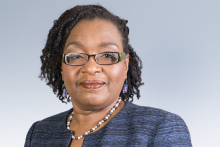When on October 13, 2007, at Eid Namaz, Feroza Rose Mohammed instigated the temporary removal of barriers which had been placed to separate the women from the men at her masjid: she was probably unaware of the contemporary global movement of women to gain equal access to and use of masjid space for prayers and fellowship. This paper provides a detailed discussion of women’s mosque movements globally as a backdrop for a historical exploration of the changing position of women in Islamic religious practice in Trinidad and Tobago during the 20th and early 21st century with specific emphasis on their use of masjid (mosque) space. Special attention is given to the critical role of religious reformer Moulvi Ameer Ali in the transformation in women’s religious and masjid practice in Trinidad and Tobago in the early-20th century. The paper concludes with three case studies of ongoing negotiations and struggles over access to masjid space in the first decade of this century– Feroza ‘Rose’ Mohammed and the Jinnah Memorial Mosque, the San Juan Muslim Ladies Organisation and the Nur-E-Islam Mosque and women and the reconstruction plans of the Bamboo Mosque. The powerful impact of the global Islamisation project is examined and the paradoxical way in which restrictions on women’s performance of congregational piety results in the emergence of a consciousness of resistance and feminist agency within the paradigm of Islam. Trinidad and Tobago is the southernmost nation-state of the Caribbean. Muslims comprise approximately 6-8% of the population.
This event is cosponsored by Center for Africana Studies and Department of Religious Studies.
This event is free and open to the public.
Rhoda Reddock is professor of Gender, Social Change and Development and former deputy campus principal of the University of the West Indies, St. Augustine campus. For many years she served as head of the Centre for Gender and Development Studies. She is also a former lecturer in sociology at the UWI St. Augustine and associate lecturer in the Women and Development programme at the Institute of Social Studies, The Hague. She is an activist in the Caribbean Women’s movement and founding member and first chair of the Caribbean Association or Feminist Research and Action (CAFRA). A former chair of Research Committee-32 (Women and Society) of the International Sociological Association (1994-1998) she has also served on the Council of the Caribbean Studies Association. She has numerous publications including Women, Labour and Politics in Trinidad and Tobago: A History, Zed Books, 1994 which was named a CHOICE Outstanding Academic Book for 1995, Plantation Women: International Experiences, Berg, 1998 co- edited with Shobhita Jain, Caribbean Sociology: Introductory Readings edited with Christine Barrow, 2000, and the edited collection Interrogating Caribbean Masculinities, The UWI Press, 2004 winner of the best-selling textbook award of 2007and most recently the co-edited volume, Sex Power and Taboo, Ian Randle, 2009.
In October 2001 she received the UWI Vice Chancellor’s Award for All-Round Excellence in Teaching and Administration, Research and Public service and in July 2002 was recipient of the Seventh CARICOM Triennial Award for Women at the Heads of Government Meeting of the Caribbean Community in Guyana. In 2004, Prof. Reddock was a recipient of a distinguished Fulbright New Century Scholars Award and in 2005-2006; she was visiting professor at the African Gender Institute, University of Cape Town, South Africa. On 8, March 2008 she received an International Woman of Courage Award from the US Department of State and an honorary doctorate from the University of the Western Cape in South Africa in March 2012.

 The Program in Gender, Sexuality, and Women’s Studies
The Program in Gender, Sexuality, and Women’s Studies